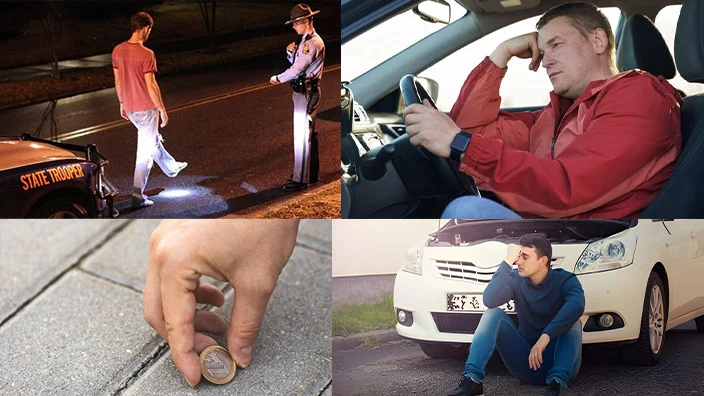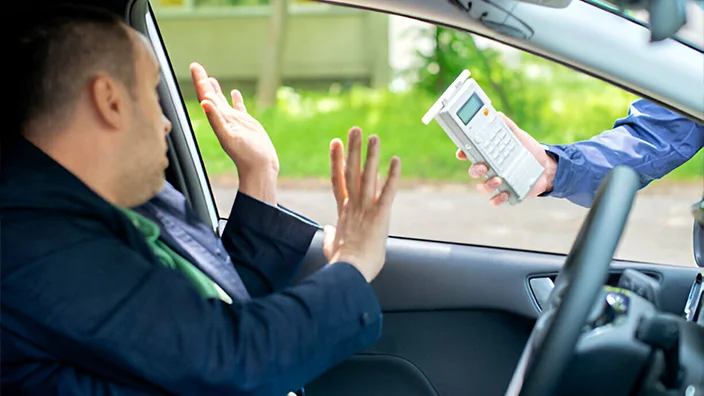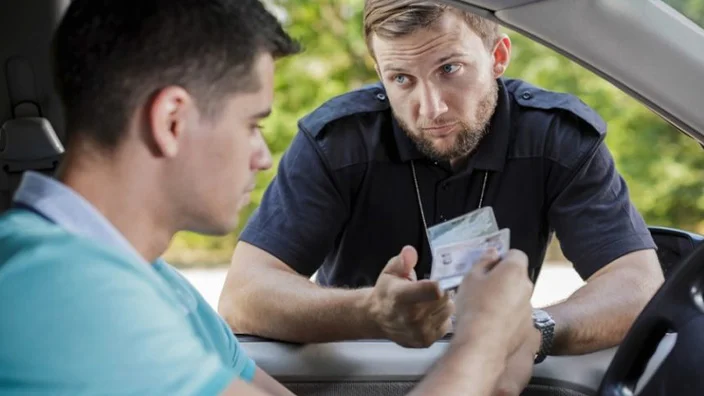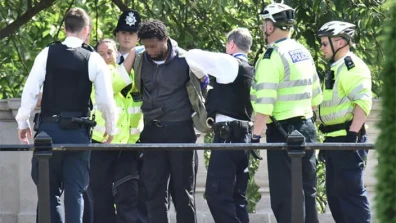Driving late at night is not always adventurous, sometimes police on traffic stops may trap you and insist on different tests for driving under the influence (DUI) of alcohol, etc.
One of the tests is the Field Sobriety Test (FST), people enquire can you refuse a field sobriety test; if so. what repercussions you might face. Do you have any other alternatives than this specific test.
The study highlights the issues with the other tests and shows you different policies regarding DUI cases.
What are your rights and how do you refuse the Standardized Field Sobriety Tests while avoiding any unwanted circumstances of fine and imprisonment?
Table of Contents
- Understanding Field Sobriety Tests (FST)
- Law Enforcement's Testing Manual
- Alternative Tests by Pinellas County Law Enforcement
- The Tests Designed for Failure
- A Difficult Decision-Take or Refuse the Tests
- Pros and Cons of Refusing a Field Sobriety Test
- Legal Guidance You Can Trust
- Conclusion
- Frequently Asked Questions
Understanding Field Sobriety Tests (FST)
Field Sobriety Tests (FST) are a set of standardized tests conducted by law enforcement officers to check whether a driver is drunk or completely sober.
Field Sobriety Tests has three tests approved by the National Highway Traffic Safety Administration.
Concerned Study: How Much Is Running A Red Light Ticket?
Law Enforcement's Testing Manual
The National Highway Traffic Safety Administration (NHTSA) has introduced a manual for roadside to perform Field Sobriety Tests, the following are the details of the types.
The Walk and Turn Test: In this test, the drunk driver with reasonable suspicion is directed to walk and turn in a heel to toe manner for nine steps in a straight line and then return in heel to toe manner at the starting point.
 The Horizontal Gaze Nystagmus Test: In the HGN test the alleged driver is asked to gaze at or stare at an object held in front of his/her eyes. If the eyes bounce or jerk, the driver is intoxicated.
The Horizontal Gaze Nystagmus Test: In the HGN test the alleged driver is asked to gaze at or stare at an object held in front of his/her eyes. If the eyes bounce or jerk, the driver is intoxicated.
To check the divided attention for probable cause, they may hold a pen or small flashlight.
The One Leg Stand Test: The roadside police will ask the driver to stand on one foot and hold the other 6 feet above the ground.
The police will ask the driver to count aloud numbers above 1000 and will examine the mental and physical balance.
Alternative Tests by Pinellas County Law Enforcement
If you are refusing the Field Sobriety Tests, the officer asks you to take some alternative tests to FST. These tests may include reading the alphabet aloud, finger dexterity tests, saying birthday as a test, and countless more.
The Tests Designed for Failure
As mentioned; sometimes the police officers want to arrest the driver whether they are drunk or not. So if fee the tests are designed for failure, request the police officers to not take the FST and go for the alternatives.
 The following are the tests so difficult that seem designed especially for failure.
The following are the tests so difficult that seem designed especially for failure.
- Reciting the alphabet backwards
- Standing with feet together while tipping the head backward and regaining balance or maintaining balance
- Counting backwards starting at a large number
- Picking coins off the ground
- standing on one foot and holding the other feet above the ground
A Difficult Decision-Take or Refuse the Tests
It is very challenging sometimes to take the tests, if the police officer insists on taking them, he has already made up his mind to charge you.
You can make excuses for some physical health issues that may be triggered by the test.
Refusing a FST in a DUI Stop & Your Legal Rights
Some states have flexibility and give legal limits to refuse the FST. If you have any health issues, tell the police officer and refuse not to take the test as it is your legal right.
But the same manner of refusal should be very polite to convince the police officer easily.

Refusing a Field Sobriety Test in Iowa
In Iowa the Field Sobriety Tests are voluntary, and the law is flexible for the test. The refusal of them do not push towards the police station but urine tests and chemical tests like blood tests and breathalyzer tests or breath test.
The blood test will check the blood alcohol level and person’s blood alcohol concentration.
The implied consent law only concerns chemical tests, if the roadside officer is insisting on you, politely tell him about the implied consent law and refuse the Field Sobriety Tests.
Sometimes the refusal may result in driver’s license suspension.
Pros and Cons of Refusing a Field Sobriety Test
The pros and cons of refusing a Field Sobriety Test are the following;
Pros of Refusing a Field Sobriety Test: Refusing the Field Sobriety Test may help you avoid unreliable other evidence.
The officer will get confused but won’t back up his/her suspicion. If the device has a fault, refusal may save from an arrest.
Cons of Refusing a Field Sobriety Test: Refusing FTS may increase the chances of your arrest, and chemical tests may be done on the spot.
Your license may be suspended if you misbehave or refuse the test. The suspicion of drunk driving may increase.

Legal Guidance You Can Trust
The drunk driving allegations are very challenging and may result in imprisonment or fine irrespective of the fact whether you were drunk or sober.
However, it is up to you how you decide to proceed; however it is always preferred to get in contact with some legal attorney/ specialized individual or the firm and then follow the guidelines given to you.
Conclusion
Field Sobriety Tests (FST) are a set of standard tests conducted by law enforcement officers to check whether a driver was drunk or sober.
The tests include; the walk and run test, standing on one leg, and the horizontal gaze nystagmus test.
The crucial question is can you refuse a field sobriety test or not. The law in some states is flexible for the Field Sobriety Test.
If the roadside officer is insisting on you, politely tell him about the law and refuse the Field Sobriety Test. Sometimes the refusal may result in your license suspension or you may be forced for to attend the test.
Frequently Asked Questions
Can you refuse a field sobriety test in USA?
Yes, you can refuse the Field Sobriety Tests in the USA, they are voluntary, and the law is flexible for the tests. There is no penalty or consequence but you may face alternative tests.
Are you required to take a field sobriety test in Texas?
No, you are not required to take Field Sobriety Tests in Texas. You can very politely refuse them, however, an officer may take an alternative.
Are field sobriety tests mandatory in Maryland?
No, the Field Sobriety Tests re not mandatory in Maryland and you can request to not take them. There are no penalties for FST refusal.
Are field sobriety tests voluntary in Georgia?
Yes, Field Sobriety Tests are voluntary in Georgia, the law is flexible for the test. There is no penalty or consequence but your refusal may result in arrest.


















